
- Dharma Message
Back Number
-
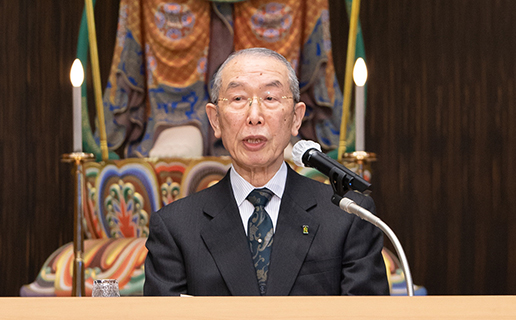 What Is Filial Piety?
2025.06.01
What Is Filial Piety?
2025.06.01
-
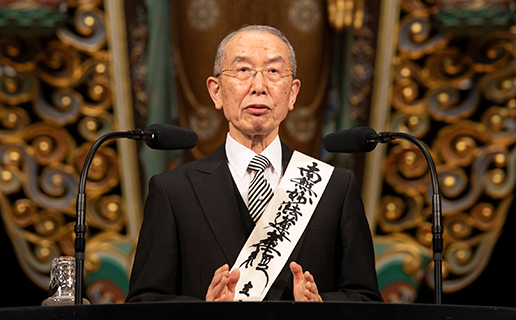 Because We Have a Father and a Mother
2025.05.01
Because We Have a Father and a Mother
2025.05.01
-
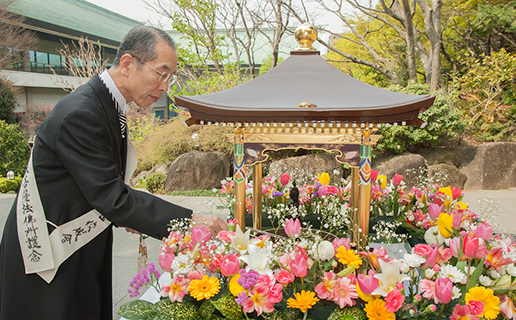 Believing and Following
2025.04.01
Believing and Following
2025.04.01
-
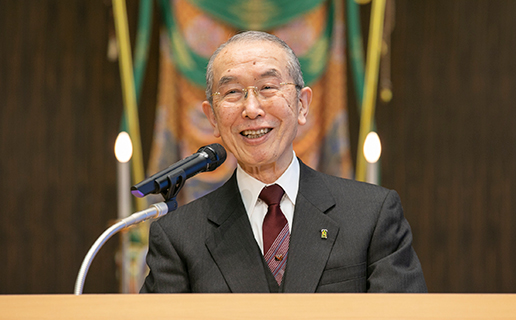 Being Grateful for Nature
2025.03.01
Being Grateful for Nature
2025.03.01
-
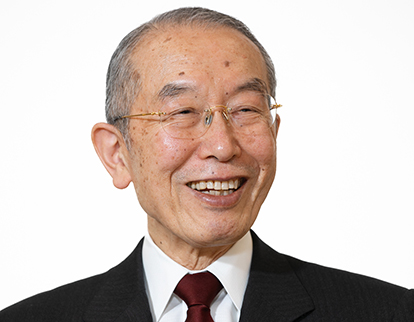 Nurturing the Future
2025.02.01
Nurturing the Future
2025.02.01
-
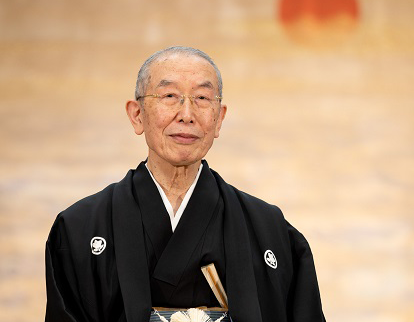 A Brand-New Year
2025.01.06
A Brand-New Year
2025.01.06
-
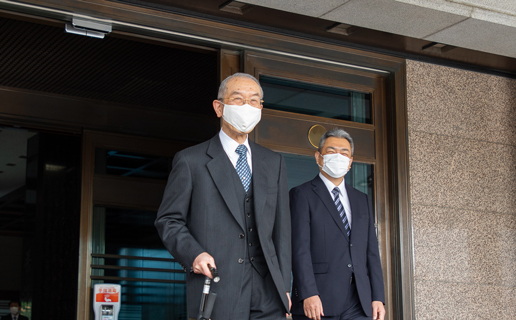 Every One of Us Is an Oasis
2024.12.23
Every One of Us Is an Oasis
2024.12.23
-
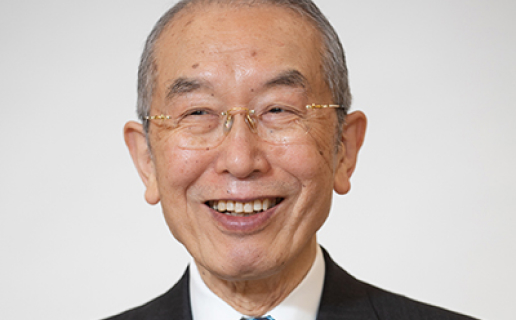 Nurtured by Encounters—The Mind of Reverence and t…
2024.12.01
Nurtured by Encounters—The Mind of Reverence and t…
2024.12.01
-
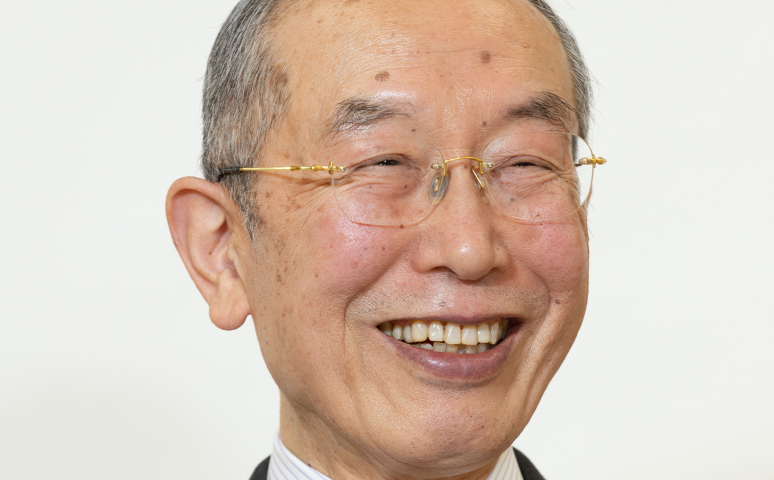 Nurtured by Encounters—The Mind of Reverence and t…
2024.11.01
Nurtured by Encounters—The Mind of Reverence and t…
2024.11.01
-
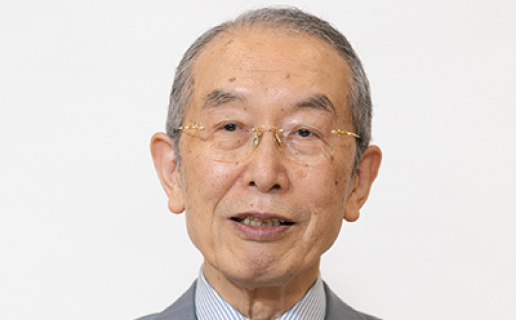 Cultivate Your Mind, Return to Your Inner Buddha
2024.10.01
Cultivate Your Mind, Return to Your Inner Buddha
2024.10.01
-
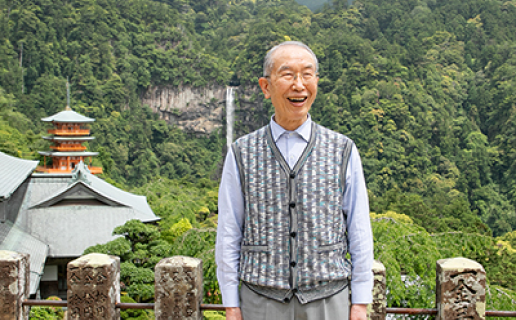 Cultivate Your Heart, Unearth Your Buddha Nature
2024.09.01
Cultivate Your Heart, Unearth Your Buddha Nature
2024.09.01
-
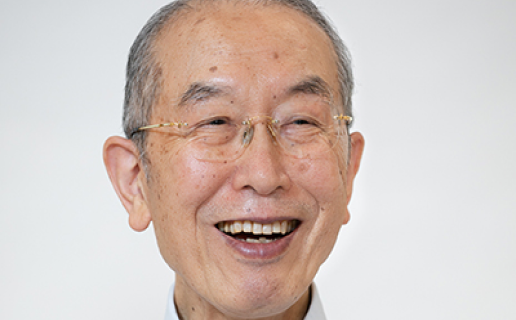 All of Us Will Go to “Our Hometown”
2024.08.01
All of Us Will Go to “Our Hometown”
2024.08.01
-
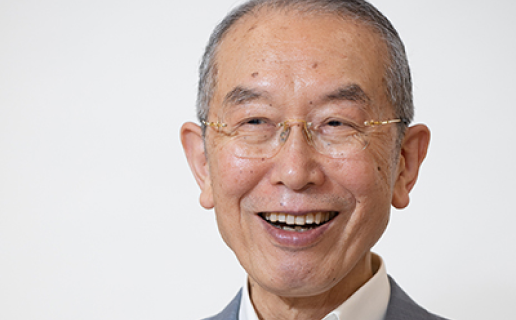 Our Lives and Eternal Life
2024.07.01
Our Lives and Eternal Life
2024.07.01
-
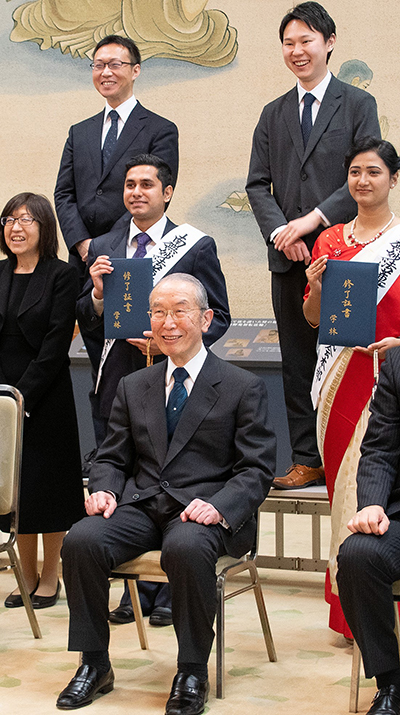 Living with a Calm and Peaceful Mind
2024.06.01
Living with a Calm and Peaceful Mind
2024.06.01
-
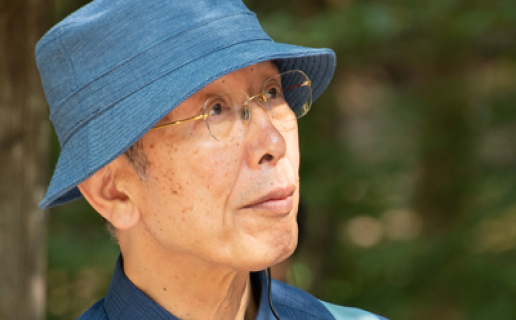 Flexibility Leads to Mental Freedom
2024.05.01
Flexibility Leads to Mental Freedom
2024.05.01
-
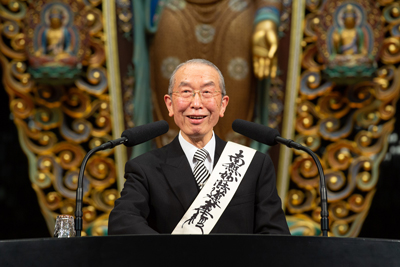 Accepting Things as They Really Are
2024.04.01
Accepting Things as They Really Are
2024.04.01
-
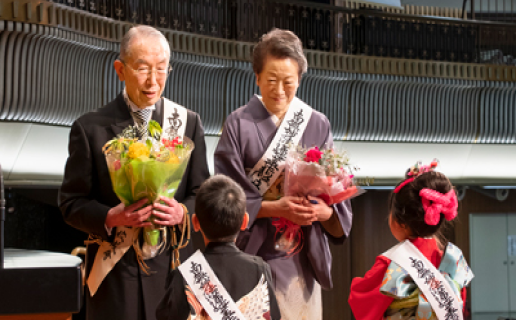 Self-Restraint Comes from Compassion
2024.03.01
Self-Restraint Comes from Compassion
2024.03.01
-
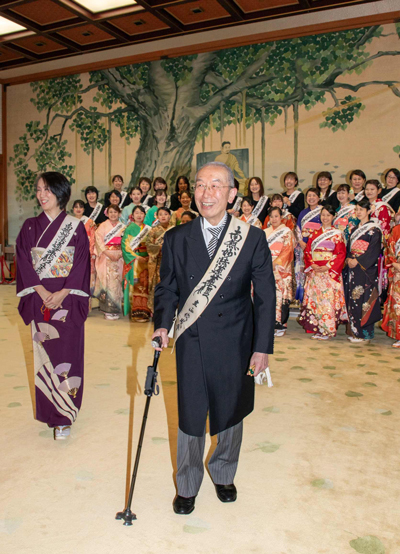 To Live with Humility Is to Live Well
2024.02.01
To Live with Humility Is to Live Well
2024.02.01
-
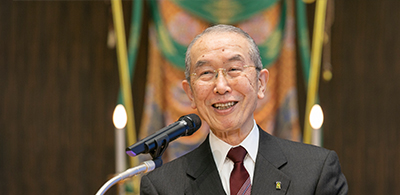 Diligently “Cultivating the Buddhist Heart”
2024.01.01
Diligently “Cultivating the Buddhist Heart”
2024.01.01
-
 Illness and Pain Are Our Good Friends for Staying …
2023.12.01
Illness and Pain Are Our Good Friends for Staying …
2023.12.01
-
 Complaining in Moderation
2023.11.01
Complaining in Moderation
2023.11.01
-
 Anger Harms Both Mind and Body
2023.10.01
Anger Harms Both Mind and Body
2023.10.01
-
 Greed Is a Source of Troubles
2023.09.01
Greed Is a Source of Troubles
2023.09.01
-
 To Live with Peace of Mind
2023.08.01
To Live with Peace of Mind
2023.08.01
-
 Food That Nurtures the Body and the Mind
2023.07.01
Food That Nurtures the Body and the Mind
2023.07.01
-
 Turn Your Mind Toward Seasonal Customs
2023.06.01
Turn Your Mind Toward Seasonal Customs
2023.06.01
-
 Being Kind to Yourself
2023.05.01
Being Kind to Yourself
2023.05.01
-
 The Morning Is Important
2023.04.01
The Morning Is Important
2023.04.01
-
 The Body and the Mind Are Deeply Connected
2023.03.01
The Body and the Mind Are Deeply Connected
2023.03.01
-
 What Happens to Other People Also Happens to You
2023.02.01
What Happens to Other People Also Happens to You
2023.02.01
-
 Health Is the Greatest Benefit
2023.01.01
Health Is the Greatest Benefit
2023.01.01
-
 All Beings Living Together Happily —the Six Parami…
2022.12.01
All Beings Living Together Happily —the Six Parami…
2022.12.01
-
 The Mind of Praying and Hoping for Everyone’s Happ…
2022.11.01
The Mind of Praying and Hoping for Everyone’s Happ…
2022.11.01
-
 Knowing the Source of Suffering Wisdom, Part 1
2022.10.01
Knowing the Source of Suffering Wisdom, Part 1
2022.10.01
-
 The Joy of Having Something to Believe In —Concent…
2022.09.01
The Joy of Having Something to Believe In —Concent…
2022.09.01
-
 Living Your True Self—Diligence, Part 2
2022.08.01
Living Your True Self—Diligence, Part 2
2022.08.01
-
 Living Our Daily Lives as Expected—Diligence, Part…
2022.07.01
Living Our Daily Lives as Expected—Diligence, Part…
2022.07.01
-
 The Mind of Compassion—Forbearance, Part 2
2022.06.01
The Mind of Compassion—Forbearance, Part 2
2022.06.01
-
 Forbearance Is Not “Putting Up With Things”—Forbea…
2022.05.01
Forbearance Is Not “Putting Up With Things”—Forbea…
2022.05.01
-
 Keeping the Precepts Is a Token of Your Gratitude
2022.04.01
Keeping the Precepts Is a Token of Your Gratitude
2022.04.01
-
 Sowing Seeds in the Fields of Blessings —Donation,…
2022.03.01
Sowing Seeds in the Fields of Blessings —Donation,…
2022.03.01
-
 Saving Money and Spending Money—Donation, Part 2
2022.02.01
Saving Money and Spending Money—Donation, Part 2
2022.02.01
-
 The Key Phrase of Our Time Is “Benefitting Others”…
2022.01.01
The Key Phrase of Our Time Is “Benefitting Others”…
2022.01.01
-
 Listen Closely to Your Inner Buddha
2021.12.01
Listen Closely to Your Inner Buddha
2021.12.01
-
 Why Is It Necessary to Acknowledge Our Faults?
2021.11.01
Why Is It Necessary to Acknowledge Our Faults?
2021.11.01
-
 Let’s Return to Our Starting Point
2021.10.01
Let’s Return to Our Starting Point
2021.10.01
-
 Making Good Karmic Connections
2021.09.01
Making Good Karmic Connections
2021.09.01
-
 Sealing the Cracks in Your Mind
2021.08.01
Sealing the Cracks in Your Mind
2021.08.01
-
 With Eyes of Compassion
2021.07.01
With Eyes of Compassion
2021.07.01
-
 Calling to Mind the Regarder of the Sounds
2021.06.01
Calling to Mind the Regarder of the Sounds
2021.06.01
-
 Living Thoughtfully
2021.05.01
Living Thoughtfully
2021.05.01
-
 Living Together, Here and Now
2021.04.01
Living Together, Here and Now
2021.04.01
-
 The Mind of Belief and Trust
2021.03.01
The Mind of Belief and Trust
2021.03.01
-
 People Who Bring Joy to Others
2021.02.01
People Who Bring Joy to Others
2021.02.01
-
 Like the Bodhisattva Never Unworthy of Respect
2021.01.01
Like the Bodhisattva Never Unworthy of Respect
2021.01.01
-
 Living Each Day Refreshed
2020.12.01
Living Each Day Refreshed
2020.12.01
-
 The Happiness of Being Able to Express Gratitude
2020.11.01
The Happiness of Being Able to Express Gratitude
2020.11.01
-
 If You Change Your Mind, You Change Your Life
2020.10.01
If You Change Your Mind, You Change Your Life
2020.10.01
-
 The Mind of Being Sad Together
2020.09.01
The Mind of Being Sad Together
2020.09.01
-
 Nothing Is without Purpose
2020.08.01
Nothing Is without Purpose
2020.08.01
-
 What You Can Do Now
2020.07.01
What You Can Do Now
2020.07.01
-
 Do Not Be Defeated by a Lazy Mind
2020.06.01
Do Not Be Defeated by a Lazy Mind
2020.06.01
-
 Calmly and Peacefully
2020.05.01
Calmly and Peacefully
2020.05.01
-
 Transcending a Biased View
2020.04.01
Transcending a Biased View
2020.04.01
-
 The Happiness of Knowing Satisfaction
2020.03.01
The Happiness of Knowing Satisfaction
2020.03.01
-
 Finding a Purpose in Life
2020.02.01
Finding a Purpose in Life
2020.02.01
-
 Returning to Your True Self
2020.01.01
Returning to Your True Self
2020.01.01
-
 Speaking Eloquently
2019.12.01
Speaking Eloquently
2019.12.01
-
 Encouragement and Diligence
2019.11.01
Encouragement and Diligence
2019.11.01
-
 Making Offerings to "Buddhas"
2019.10.01
Making Offerings to "Buddhas"
2019.10.01
-
 Because We Are Different
2019.09.01
Because We Are Different
2019.09.01
-
 Letting Your Own Treasure Shine Forth
2019.08.01
Letting Your Own Treasure Shine Forth
2019.08.01
-
 Living Free and Unhindered
2019.07.01
Living Free and Unhindered
2019.07.01
-
 Studying the Buddha's Teachings
2019.06.01
Studying the Buddha's Teachings
2019.06.01
-
 Why Don't Our Sufferings End?
2019.05.01
Why Don't Our Sufferings End?
2019.05.01
-
 People Who Are Like a Fragrant Breeze
2019.04.01
People Who Are Like a Fragrant Breeze
2019.04.01
-
 Creating Happiness for Yourself and Others
2019.03.01
Creating Happiness for Yourself and Others
2019.03.01
-
 Making a Mental Habit of Being Considerate of Othe…
2019.02.01
Making a Mental Habit of Being Considerate of Othe…
2019.02.01
-
 Everyone Has the Roots of Goodness
2019.01.01
Everyone Has the Roots of Goodness
2019.01.01
-
 Awakening to Your Mission
2018.12.01
Awakening to Your Mission
2018.12.01
-
 With Consideration for Others Always in Mind
2018.11.01
With Consideration for Others Always in Mind
2018.11.01
-
 Together With Others, Make a Lighthearted Effort
2018.10.01
Together With Others, Make a Lighthearted Effort
2018.10.01
-
 In the Service of All Life
2018.09.01
In the Service of All Life
2018.09.01
-
 The Mind of Reverence and the Mind of Shame
2018.08.01
The Mind of Reverence and the Mind of Shame
2018.08.01
-
 Words with a Calming Effect
2018.07.01
Words with a Calming Effect
2018.07.01
-
 Standing Firm
2018.06.01
Standing Firm
2018.06.01
-
 Living Joyfully
2018.05.01
Living Joyfully
2018.05.01
-
 Becoming a Person of Complete Harmony
2018.04.01
Becoming a Person of Complete Harmony
2018.04.01
-
 Becoming Happy Together with People in the Communi…
2018.03.01
Becoming Happy Together with People in the Communi…
2018.03.01
-
 Life Is a Solemn Matter
2018.02.01
Life Is a Solemn Matter
2018.02.01
-
 Living Brightly and Cheerfully
2018.01.01
Living Brightly and Cheerfully
2018.01.01
-
 Mastering Form
2017.12.01
Mastering Form
2017.12.01
-
 Filial Piety and Bodhisattva Practice
2017.11.01
Filial Piety and Bodhisattva Practice
2017.11.01
-
 Moving Forward through Suffering and Hardship
2017.10.01
Moving Forward through Suffering and Hardship
2017.10.01
-
 Sharing the Dharma with Others
2017.09.01
Sharing the Dharma with Others
2017.09.01
-
 Becoming Aware of Invisible Workings
2017.08.01
Becoming Aware of Invisible Workings
2017.08.01
-
 Giving Recognition and Praise to Others
2017.07.01
Giving Recognition and Praise to Others
2017.07.01
-
 Do Away with Complaining
2017.06.01
Do Away with Complaining
2017.06.01
-
 Allow Me to Help
2017.05.01
Allow Me to Help
2017.05.01
-
 Wasting Time
2017.04.01
Wasting Time
2017.04.01
-
 Do You Think Positively or Negatively?
2017.03.01
Do You Think Positively or Negatively?
2017.03.01
-
 Becoming Free of Worry
2017.02.01
Becoming Free of Worry
2017.02.01
-
 A Steadfast, Simple Manner
2017.01.01
A Steadfast, Simple Manner
2017.01.01
-
 Look Up to the Heavens, Feel No Shame in Doing So
2016.12.01
Look Up to the Heavens, Feel No Shame in Doing So
2016.12.01
-
 Smiling Can Create Happiness
2016.11.01
Smiling Can Create Happiness
2016.11.01
-
 What Lies beyond Prayer
2016.10.01
What Lies beyond Prayer
2016.10.01
-
 The Brilliance of Our Senior Citizens
2016.09.01
The Brilliance of Our Senior Citizens
2016.09.01
-
 Start With Yourself
2016.08.01
Start With Yourself
2016.08.01
-
 Helping People to Develop
2016.07.01
Helping People to Develop
2016.07.01
-
 The Key to Harmony
2016.06.01
The Key to Harmony
2016.06.01
-
 Developing Your Own Distinctive Traits
2016.05.01
Developing Your Own Distinctive Traits
2016.05.01
-
 You, I--We Are All Buddhas
2016.04.01
You, I--We Are All Buddhas
2016.04.01
-
 Do Not Do What Is Wrong
2016.03.01
Do Not Do What Is Wrong
2016.03.01
-
 Switching Off the Selfish Mind
2016.02.01
Switching Off the Selfish Mind
2016.02.01
-
 Passing Along the Important Things
2016.01.02
Passing Along the Important Things
2016.01.02
-
 The Mind of Putting Others First
2016.01.01
The Mind of Putting Others First
2016.01.01
-
 Avoiding the Second Arrow
2015.12.01
Avoiding the Second Arrow
2015.12.01
-
 Never Despise Others
2015.11.01
Never Despise Others
2015.11.01
-
 The Mind of Faith
2015.10.01
The Mind of Faith
2015.10.01
-
 As One with the Universe
2015.09.01
As One with the Universe
2015.09.01
-
 A Lifestyle That Never Tires One
2015.08.01
A Lifestyle That Never Tires One
2015.08.01
-
 The Joy in Expressing Gratitude to Ancestors
2015.07.01
The Joy in Expressing Gratitude to Ancestors
2015.07.01
-
 The Meaning of Taking Refuge
2015.06.01
The Meaning of Taking Refuge
2015.06.01
-
 Unnamed People Are National Treasures
2015.05.01
Unnamed People Are National Treasures
2015.05.01
-
 The Awareness that We Are Still Beginners
2015.04.01
The Awareness that We Are Still Beginners
2015.04.01
-
 Appreciating Seasonal Events
2015.03.01
Appreciating Seasonal Events
2015.03.01
-
 The Feeling of Being Alive
2015.02.01
The Feeling of Being Alive
2015.02.01
-
 President's New Year's Guidance for 2015
2015.01.01
President's New Year's Guidance for 2015
2015.01.01
-
 The Heart and Mind of Putting Our Hands Together R…
2014.12.01
The Heart and Mind of Putting Our Hands Together R…
2014.12.01
-
 Accepting Our Responsibilities Willingly
2014.11.01
Accepting Our Responsibilities Willingly
2014.11.01
-
 Eat in Moderation for a Healthy
2014.10.01
Eat in Moderation for a Healthy
2014.10.01
-
 Words Connect Us with Others
2014.09.01
Words Connect Us with Others
2014.09.01
-
 Savoring the Summer Heat
2014.08.01
Savoring the Summer Heat
2014.08.01
-
 The Present Moment, Right Now
2014.07.01
The Present Moment, Right Now
2014.07.01
-
 Let Us Transmit Our Joy
2014.06.01
Let Us Transmit Our Joy
2014.06.01
-
 Shining Our Light on Others
2014.05.01
Shining Our Light on Others
2014.05.01
-
 Living a Great Vow
2014.04.01
Living a Great Vow
2014.04.01
-
 Practicing Kindness
2014.03.01
Practicing Kindness
2014.03.01
-
 Under the Care of Others
2014.02.01
Under the Care of Others
2014.02.01
-
 Let Us Convey Our Joy
2014.01.01
Let Us Convey Our Joy
2014.01.01
PAGE TOP


 What Is Filial Piety?
2025.06.01
What Is Filial Piety?
2025.06.01
 Because We Have a Father and a Mother
2025.05.01
Because We Have a Father and a Mother
2025.05.01
 Believing and Following
2025.04.01
Believing and Following
2025.04.01
 Being Grateful for Nature
2025.03.01
Being Grateful for Nature
2025.03.01
 Nurturing the Future
2025.02.01
Nurturing the Future
2025.02.01
 A Brand-New Year
2025.01.06
A Brand-New Year
2025.01.06
 Every One of Us Is an Oasis
2024.12.23
Every One of Us Is an Oasis
2024.12.23
 Nurtured by Encounters—The Mind of Reverence and t…
2024.12.01
Nurtured by Encounters—The Mind of Reverence and t…
2024.12.01
 Nurtured by Encounters—The Mind of Reverence and t…
2024.11.01
Nurtured by Encounters—The Mind of Reverence and t…
2024.11.01
 Cultivate Your Mind, Return to Your Inner Buddha
2024.10.01
Cultivate Your Mind, Return to Your Inner Buddha
2024.10.01
 Cultivate Your Heart, Unearth Your Buddha Nature
2024.09.01
Cultivate Your Heart, Unearth Your Buddha Nature
2024.09.01
 All of Us Will Go to “Our Hometown”
2024.08.01
All of Us Will Go to “Our Hometown”
2024.08.01
 Our Lives and Eternal Life
2024.07.01
Our Lives and Eternal Life
2024.07.01
 Living with a Calm and Peaceful Mind
2024.06.01
Living with a Calm and Peaceful Mind
2024.06.01
 Flexibility Leads to Mental Freedom
2024.05.01
Flexibility Leads to Mental Freedom
2024.05.01
 Accepting Things as They Really Are
2024.04.01
Accepting Things as They Really Are
2024.04.01
 Self-Restraint Comes from Compassion
2024.03.01
Self-Restraint Comes from Compassion
2024.03.01
 To Live with Humility Is to Live Well
2024.02.01
To Live with Humility Is to Live Well
2024.02.01
 Diligently “Cultivating the Buddhist Heart”
2024.01.01
Diligently “Cultivating the Buddhist Heart”
2024.01.01
 Illness and Pain Are Our Good Friends for Staying …
2023.12.01
Illness and Pain Are Our Good Friends for Staying …
2023.12.01
 Complaining in Moderation
2023.11.01
Complaining in Moderation
2023.11.01
 Anger Harms Both Mind and Body
2023.10.01
Anger Harms Both Mind and Body
2023.10.01
 Greed Is a Source of Troubles
2023.09.01
Greed Is a Source of Troubles
2023.09.01
 To Live with Peace of Mind
2023.08.01
To Live with Peace of Mind
2023.08.01
 Food That Nurtures the Body and the Mind
2023.07.01
Food That Nurtures the Body and the Mind
2023.07.01
 Turn Your Mind Toward Seasonal Customs
2023.06.01
Turn Your Mind Toward Seasonal Customs
2023.06.01
 Being Kind to Yourself
2023.05.01
Being Kind to Yourself
2023.05.01
 The Morning Is Important
2023.04.01
The Morning Is Important
2023.04.01
 The Body and the Mind Are Deeply Connected
2023.03.01
The Body and the Mind Are Deeply Connected
2023.03.01
 What Happens to Other People Also Happens to You
2023.02.01
What Happens to Other People Also Happens to You
2023.02.01
 Health Is the Greatest Benefit
2023.01.01
Health Is the Greatest Benefit
2023.01.01
 All Beings Living Together Happily —the Six Parami…
2022.12.01
All Beings Living Together Happily —the Six Parami…
2022.12.01
 The Mind of Praying and Hoping for Everyone’s Happ…
2022.11.01
The Mind of Praying and Hoping for Everyone’s Happ…
2022.11.01
 Knowing the Source of Suffering Wisdom, Part 1
2022.10.01
Knowing the Source of Suffering Wisdom, Part 1
2022.10.01
 The Joy of Having Something to Believe In —Concent…
2022.09.01
The Joy of Having Something to Believe In —Concent…
2022.09.01
 Living Your True Self—Diligence, Part 2
2022.08.01
Living Your True Self—Diligence, Part 2
2022.08.01
 Living Our Daily Lives as Expected—Diligence, Part…
2022.07.01
Living Our Daily Lives as Expected—Diligence, Part…
2022.07.01
 The Mind of Compassion—Forbearance, Part 2
2022.06.01
The Mind of Compassion—Forbearance, Part 2
2022.06.01
 Forbearance Is Not “Putting Up With Things”—Forbea…
2022.05.01
Forbearance Is Not “Putting Up With Things”—Forbea…
2022.05.01
 Keeping the Precepts Is a Token of Your Gratitude
2022.04.01
Keeping the Precepts Is a Token of Your Gratitude
2022.04.01
 Sowing Seeds in the Fields of Blessings —Donation,…
2022.03.01
Sowing Seeds in the Fields of Blessings —Donation,…
2022.03.01
 Saving Money and Spending Money—Donation, Part 2
2022.02.01
Saving Money and Spending Money—Donation, Part 2
2022.02.01
 The Key Phrase of Our Time Is “Benefitting Others”…
2022.01.01
The Key Phrase of Our Time Is “Benefitting Others”…
2022.01.01
 Listen Closely to Your Inner Buddha
2021.12.01
Listen Closely to Your Inner Buddha
2021.12.01
 Why Is It Necessary to Acknowledge Our Faults?
2021.11.01
Why Is It Necessary to Acknowledge Our Faults?
2021.11.01
 Let’s Return to Our Starting Point
2021.10.01
Let’s Return to Our Starting Point
2021.10.01
 Making Good Karmic Connections
2021.09.01
Making Good Karmic Connections
2021.09.01
 Sealing the Cracks in Your Mind
2021.08.01
Sealing the Cracks in Your Mind
2021.08.01
 With Eyes of Compassion
2021.07.01
With Eyes of Compassion
2021.07.01
 Calling to Mind the Regarder of the Sounds
2021.06.01
Calling to Mind the Regarder of the Sounds
2021.06.01
 Living Thoughtfully
2021.05.01
Living Thoughtfully
2021.05.01
 Living Together, Here and Now
2021.04.01
Living Together, Here and Now
2021.04.01
 The Mind of Belief and Trust
2021.03.01
The Mind of Belief and Trust
2021.03.01
 People Who Bring Joy to Others
2021.02.01
People Who Bring Joy to Others
2021.02.01
 Like the Bodhisattva Never Unworthy of Respect
2021.01.01
Like the Bodhisattva Never Unworthy of Respect
2021.01.01
 Living Each Day Refreshed
2020.12.01
Living Each Day Refreshed
2020.12.01
 The Happiness of Being Able to Express Gratitude
2020.11.01
The Happiness of Being Able to Express Gratitude
2020.11.01
 If You Change Your Mind, You Change Your Life
2020.10.01
If You Change Your Mind, You Change Your Life
2020.10.01
 The Mind of Being Sad Together
2020.09.01
The Mind of Being Sad Together
2020.09.01
 Nothing Is without Purpose
2020.08.01
Nothing Is without Purpose
2020.08.01
 What You Can Do Now
2020.07.01
What You Can Do Now
2020.07.01
 Do Not Be Defeated by a Lazy Mind
2020.06.01
Do Not Be Defeated by a Lazy Mind
2020.06.01
 Calmly and Peacefully
2020.05.01
Calmly and Peacefully
2020.05.01
 Transcending a Biased View
2020.04.01
Transcending a Biased View
2020.04.01
 The Happiness of Knowing Satisfaction
2020.03.01
The Happiness of Knowing Satisfaction
2020.03.01
 Finding a Purpose in Life
2020.02.01
Finding a Purpose in Life
2020.02.01
 Returning to Your True Self
2020.01.01
Returning to Your True Self
2020.01.01
 Speaking Eloquently
2019.12.01
Speaking Eloquently
2019.12.01
 Encouragement and Diligence
2019.11.01
Encouragement and Diligence
2019.11.01
 Making Offerings to "Buddhas"
2019.10.01
Making Offerings to "Buddhas"
2019.10.01
 Because We Are Different
2019.09.01
Because We Are Different
2019.09.01
 Letting Your Own Treasure Shine Forth
2019.08.01
Letting Your Own Treasure Shine Forth
2019.08.01
 Living Free and Unhindered
2019.07.01
Living Free and Unhindered
2019.07.01
 Studying the Buddha's Teachings
2019.06.01
Studying the Buddha's Teachings
2019.06.01
 Why Don't Our Sufferings End?
2019.05.01
Why Don't Our Sufferings End?
2019.05.01
 People Who Are Like a Fragrant Breeze
2019.04.01
People Who Are Like a Fragrant Breeze
2019.04.01
 Creating Happiness for Yourself and Others
2019.03.01
Creating Happiness for Yourself and Others
2019.03.01
 Making a Mental Habit of Being Considerate of Othe…
2019.02.01
Making a Mental Habit of Being Considerate of Othe…
2019.02.01
 Everyone Has the Roots of Goodness
2019.01.01
Everyone Has the Roots of Goodness
2019.01.01
 Awakening to Your Mission
2018.12.01
Awakening to Your Mission
2018.12.01
 With Consideration for Others Always in Mind
2018.11.01
With Consideration for Others Always in Mind
2018.11.01
 Together With Others, Make a Lighthearted Effort
2018.10.01
Together With Others, Make a Lighthearted Effort
2018.10.01
 In the Service of All Life
2018.09.01
In the Service of All Life
2018.09.01
 The Mind of Reverence and the Mind of Shame
2018.08.01
The Mind of Reverence and the Mind of Shame
2018.08.01
 Words with a Calming Effect
2018.07.01
Words with a Calming Effect
2018.07.01
 Standing Firm
2018.06.01
Standing Firm
2018.06.01
 Living Joyfully
2018.05.01
Living Joyfully
2018.05.01
 Becoming a Person of Complete Harmony
2018.04.01
Becoming a Person of Complete Harmony
2018.04.01
 Becoming Happy Together with People in the Communi…
2018.03.01
Becoming Happy Together with People in the Communi…
2018.03.01
 Life Is a Solemn Matter
2018.02.01
Life Is a Solemn Matter
2018.02.01
 Living Brightly and Cheerfully
2018.01.01
Living Brightly and Cheerfully
2018.01.01
 Mastering Form
2017.12.01
Mastering Form
2017.12.01
 Filial Piety and Bodhisattva Practice
2017.11.01
Filial Piety and Bodhisattva Practice
2017.11.01
 Moving Forward through Suffering and Hardship
2017.10.01
Moving Forward through Suffering and Hardship
2017.10.01
 Sharing the Dharma with Others
2017.09.01
Sharing the Dharma with Others
2017.09.01
 Becoming Aware of Invisible Workings
2017.08.01
Becoming Aware of Invisible Workings
2017.08.01
 Giving Recognition and Praise to Others
2017.07.01
Giving Recognition and Praise to Others
2017.07.01
 Do Away with Complaining
2017.06.01
Do Away with Complaining
2017.06.01
 Allow Me to Help
2017.05.01
Allow Me to Help
2017.05.01
 Wasting Time
2017.04.01
Wasting Time
2017.04.01
 Do You Think Positively or Negatively?
2017.03.01
Do You Think Positively or Negatively?
2017.03.01
 Becoming Free of Worry
2017.02.01
Becoming Free of Worry
2017.02.01
 A Steadfast, Simple Manner
2017.01.01
A Steadfast, Simple Manner
2017.01.01
 Look Up to the Heavens, Feel No Shame in Doing So
2016.12.01
Look Up to the Heavens, Feel No Shame in Doing So
2016.12.01
 Smiling Can Create Happiness
2016.11.01
Smiling Can Create Happiness
2016.11.01
 What Lies beyond Prayer
2016.10.01
What Lies beyond Prayer
2016.10.01
 The Brilliance of Our Senior Citizens
2016.09.01
The Brilliance of Our Senior Citizens
2016.09.01
 Start With Yourself
2016.08.01
Start With Yourself
2016.08.01
 Helping People to Develop
2016.07.01
Helping People to Develop
2016.07.01
 The Key to Harmony
2016.06.01
The Key to Harmony
2016.06.01
 Developing Your Own Distinctive Traits
2016.05.01
Developing Your Own Distinctive Traits
2016.05.01
 You, I--We Are All Buddhas
2016.04.01
You, I--We Are All Buddhas
2016.04.01
 Do Not Do What Is Wrong
2016.03.01
Do Not Do What Is Wrong
2016.03.01
 Switching Off the Selfish Mind
2016.02.01
Switching Off the Selfish Mind
2016.02.01
 Passing Along the Important Things
2016.01.02
Passing Along the Important Things
2016.01.02
 The Mind of Putting Others First
2016.01.01
The Mind of Putting Others First
2016.01.01
 Avoiding the Second Arrow
2015.12.01
Avoiding the Second Arrow
2015.12.01
 Never Despise Others
2015.11.01
Never Despise Others
2015.11.01
 The Mind of Faith
2015.10.01
The Mind of Faith
2015.10.01
 As One with the Universe
2015.09.01
As One with the Universe
2015.09.01
 A Lifestyle That Never Tires One
2015.08.01
A Lifestyle That Never Tires One
2015.08.01
 The Joy in Expressing Gratitude to Ancestors
2015.07.01
The Joy in Expressing Gratitude to Ancestors
2015.07.01
 The Meaning of Taking Refuge
2015.06.01
The Meaning of Taking Refuge
2015.06.01
 Unnamed People Are National Treasures
2015.05.01
Unnamed People Are National Treasures
2015.05.01
 The Awareness that We Are Still Beginners
2015.04.01
The Awareness that We Are Still Beginners
2015.04.01
 Appreciating Seasonal Events
2015.03.01
Appreciating Seasonal Events
2015.03.01
 The Feeling of Being Alive
2015.02.01
The Feeling of Being Alive
2015.02.01
 President's New Year's Guidance for 2015
2015.01.01
President's New Year's Guidance for 2015
2015.01.01
 The Heart and Mind of Putting Our Hands Together R…
2014.12.01
The Heart and Mind of Putting Our Hands Together R…
2014.12.01
 Accepting Our Responsibilities Willingly
2014.11.01
Accepting Our Responsibilities Willingly
2014.11.01
 Eat in Moderation for a Healthy
2014.10.01
Eat in Moderation for a Healthy
2014.10.01
 Words Connect Us with Others
2014.09.01
Words Connect Us with Others
2014.09.01
 Savoring the Summer Heat
2014.08.01
Savoring the Summer Heat
2014.08.01
 The Present Moment, Right Now
2014.07.01
The Present Moment, Right Now
2014.07.01
 Let Us Transmit Our Joy
2014.06.01
Let Us Transmit Our Joy
2014.06.01
 Shining Our Light on Others
2014.05.01
Shining Our Light on Others
2014.05.01
 Living a Great Vow
2014.04.01
Living a Great Vow
2014.04.01
 Practicing Kindness
2014.03.01
Practicing Kindness
2014.03.01
 Under the Care of Others
2014.02.01
Under the Care of Others
2014.02.01
 Let Us Convey Our Joy
2014.01.01
Let Us Convey Our Joy
2014.01.01



